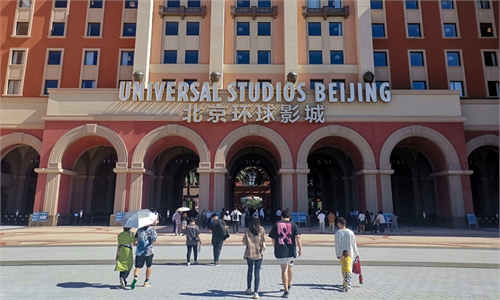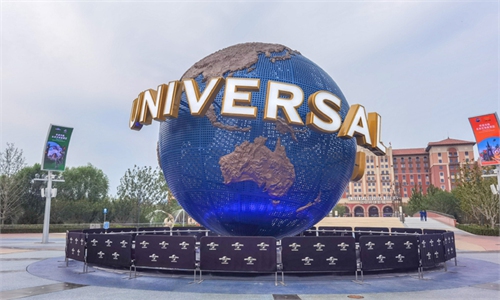COVID-19 flare-ups chill Universal Beijing
Stepped-up virus prevention measures put in place
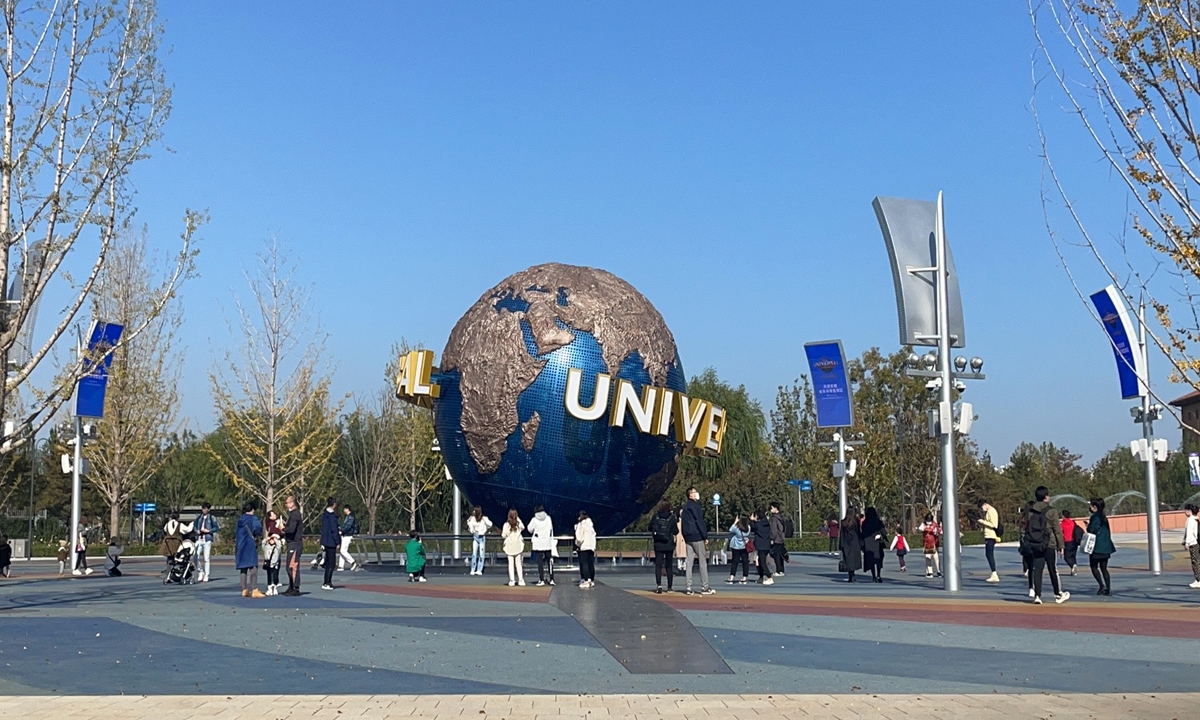
The Universal Beijing Resort on October 26 Photo: Liu Yang/GT
Contrary to the heat of eager tourists thronging to Universal Studios' Beijing resort during the National Day holidays, the latest COVID-19 flare-ups in multiple Chinese cities chilled the American theme park in the capital city, only one month after it was opened to the public.
At 9 am on Tuesday, a Global Times reporter saw few tourists waiting at the entrance of the Universal Beijing Resort, in contrast to the long lines a month ago. A visitor said that no one was waiting at the entrance when he arrived at 8 am.
At the entrance, the resort set up boards suggesting that visitors from medium- and high-risk cities not purchase tickets or enter the resort.
It was totally unlike the National Day holidays at the beginning of October, when the park made Beijing the most popular tourist destination during the holidays.
According Chinese online booking platform Qunar.com, about 21.7 percent of the resort's visitors are from Beijing and 8.7 percent from North China's Inner Mongolia Autonomous Region.
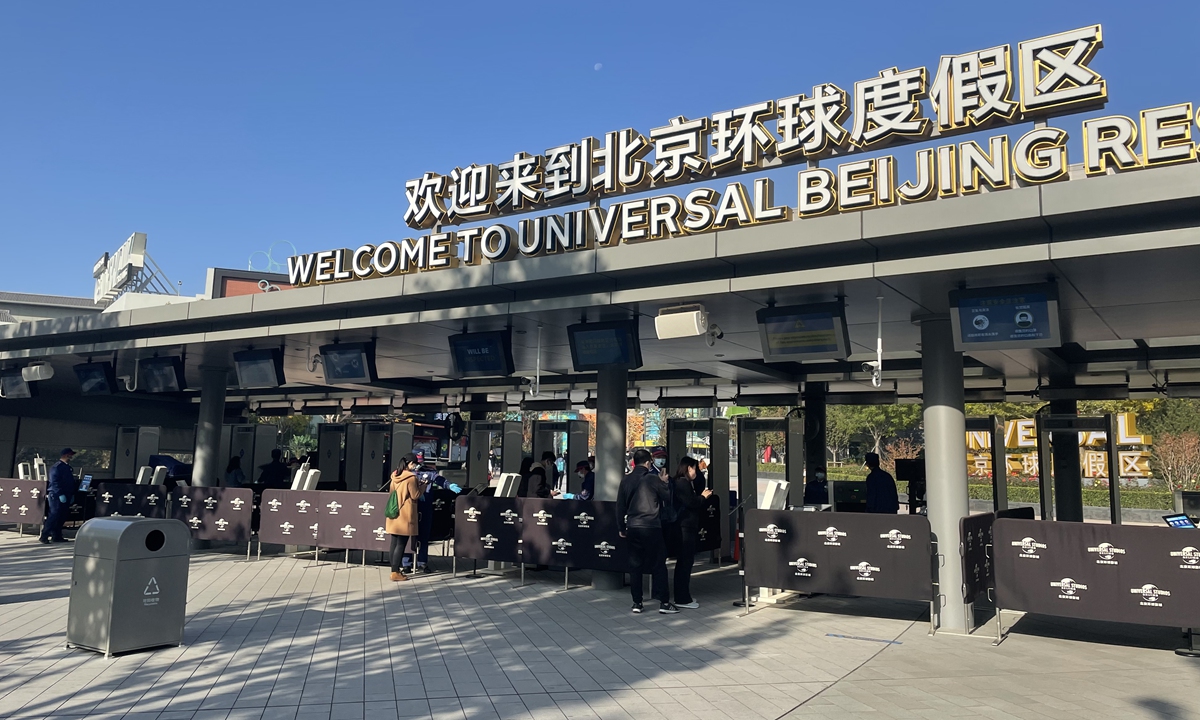
Few tourists wait at the entrance of the Universal Beijing Resort on October 26. Photo: Liu Yang/GT
The number of visits to the resort has declined by about 20 percent due to the recent COVID-19 flare-ups in Beijing and other cities, an employee at the theme park said on Tuesday. As winter approaches, the park will enter a low season.
The employee said that most of the visitors on weekdays are university students. In response to the rising number of coronavirus cases, many universities in Beijing have strengthened their regulations on epidemic prevention and control, asking students to stay within campus and thus resulting in the decline of visitors.
Moreover, coronavirus flare-ups in Beijing triggered concerns among cross-provincial tourists, with many asking for ticket refunds online, he said.
Although employees of the shops on the CityWalk went out to attract visitors, few people entered to buy souvenirs.
The new coronavirus cases in multiple cities across China, including Beijing, led to stricter virus prevention and control measures. Beijing on Monday stepped up its management of people leaving or entering the capital city. The city's residents are being advised to not leave Beijing unless necessary and not to travel to medium- and high-risk regions where confirmed cases have been reported, Beijing authorities announced on Monday.
The theme park also strengthened its virus prevention and control measures in recent days.
Several employees noted that staff from the resort, including cleaners, security guards and workers in the cinema, must take nucleic acid tests each week, in accordance with the recent epidemic prevention and control regulations.
Compared with Harry Potter wands, Chinese tourists said online that the digital Jiankang Bao health QR code is more useful and necessary in the theme park, because everybody must show it to staff before entering shops.
After customers finish eating, cleaners in the restaurants immediately disinfect the seats.
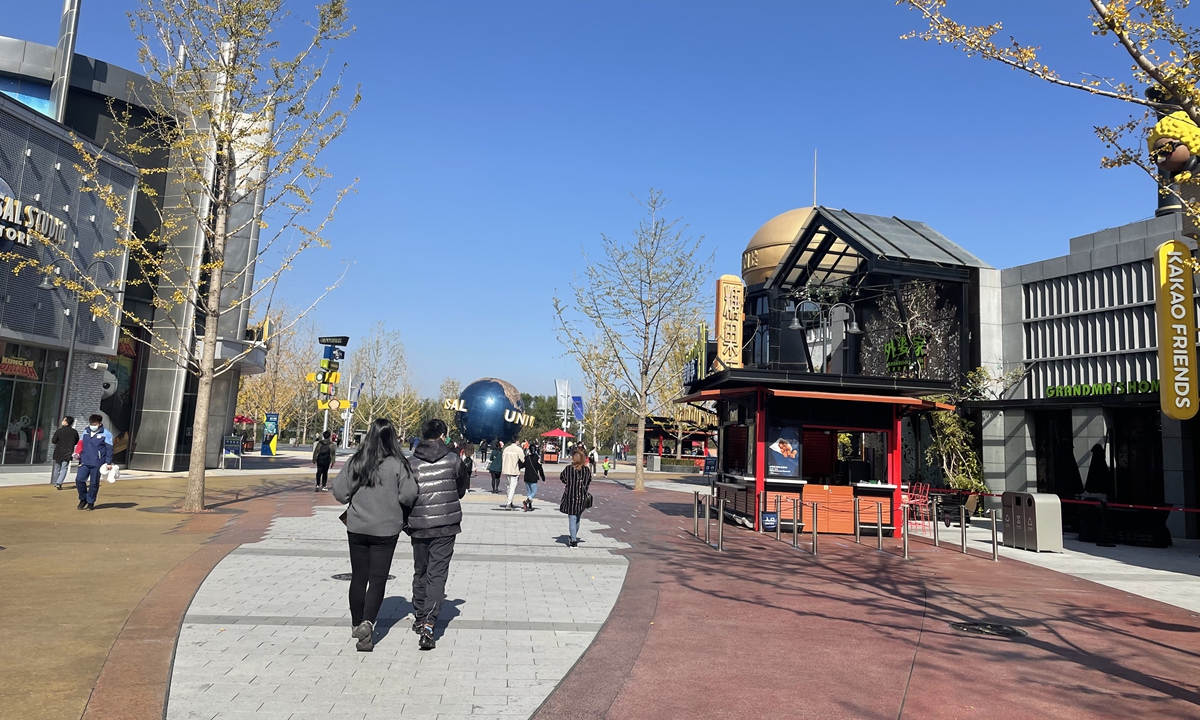
Visitors on the CityWalk of the Universal Beijing Resort on October 26 Photo: Liu Yang/GT
According to the local health authorities, the vaccination rate among employees at the Universal Beijing Resort hit 97 percent as of Sunday.At the entrances, there are 22 large temperature measurement devices, and 1,300 spots for people to disinfect their hands are placed at the facilities, restaurants and bathrooms in order to secure tourists' security and health, according to Zhou Yixiang from the emergency management and command center at the Universal Beijing Resort.
An employee of the Zheng Yiyuan massage store, a 20-minute drive from the Universal Beijing Resort, told the Global Times on Tuesday that the store had fewer customers in recent days, with only two or three tourists from the theme park coming for massage a day at most after a long day of touring.
Stepping up virus prevention and control measures ensured that people in China could move freely and return to normalcy, experts said.
The new coronavirus cases, which reduced visitor flow volume, are likely to keep the resort from realizing its goal of having 12 million visits in the first year of operation, Pan Helin, executive director with the digital economy research institute under the Zhongnan University of Economics and Law, told the Global Times on Tuesday.
The park is estimated to earn annual revenue between 25 billion ($3.92 billion) and 30 billion yuan, Pan said.
"China is capable of containing regional sporadic virus flare-ups within a short time, so this round of cases will have a limited impact on the annual revenue of the Universal Beijing Resort," he noted.
